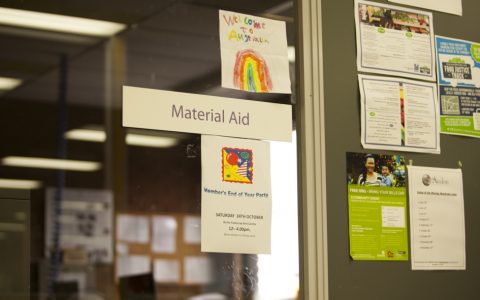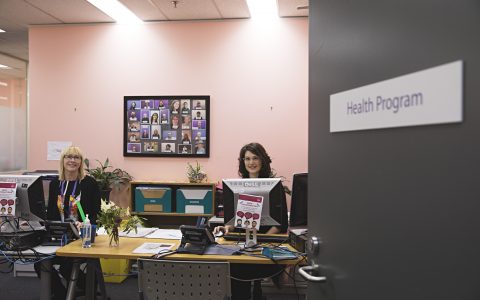Facing the health crisis
For Yasmin* the birth of her first child here in Australia was scary. After arriving in Australia by plane in 2015 from East Africa, Yasmin found herself in a difficult protection application process while pregnant. Yasmin depended on her bulk billing GP who referred her to a public hospital where she gave birth to her first child.
Since then Yasmin has had her Medicare cancelled as she goes through the protection application process. At the age of thirty-two Yasmin faced her second pregnancy, this time with no income and no Medicare.
“This experience of being pregnant was so much more frightening than with my first baby when I had Medicare. This time I could not see my family GP because I did not have money to pay for appointments. And when the hospital told me I would have to pay for my blood tests and scans I did not know what to do. And I was very worried that all the stress would harm the baby.”
Critical medical attention
After presenting to the Asylum Seeker Resource Centre (ASRC) Health Clinic, an ASRC nurse booked her in to have a pro bono pregnancy scan at St Vincent’s Pathology. Once this first scan was arranged, the ASRC nursing staff arranged for Yasmin’s health records to be transferred from her community GP to the ASRC GP. Taking her cultural needs into consideration it was arranged for Yasmin to see a female pro bono GP at the ASRC.
“When the nurses from ASRC phoned me and said I could see a GP there for free I felt very relieved. They said I could see a lady doctor at ASRC which was very good as it is not appropriate in my country and religion to see a man doctor.
“I could not have had my pregnancy blood tests and scans if the nurses at ASRC had not sent me to St Vincent’s hospital where I did not have to pay. I also got my pregnancy vaccinations for free at ASRC so that my baby was not at risk.”
Family violence support
The extreme stress of the application process put Yasmin’s family under immense pressure, and she struggled with family violence. Yasmin missed some pregnancy care appointments due to a change of address – she had moved temporarily to a women’s refuge. Her ASRC nurse liaised on her behalf with the public hospital to update her address on their records and put measures in place to ensure Yasmin would not be discharged from pregnancy care and her welfare would be followed up if she did not attend future appointments.
“With all the stress of losing Medicare and having no money, my husband and I started to have more problems. We are okay now but for a while it was very bad. The doctor and nurses and ASRC organised for us to get some counselling and other help. All of ASRC helped us to get through this very bad time.”
With Yasmin’s mental health and safety a concern the ASRC liaised with a social worker at her hospital to assess and support Yasmin before and after the delivery of her baby, as well as being visited by her local Maternity and Child Health Nurse.
General Access and Material Aid
Now with a newborn and toddler, Yasmin is still without Medicare or income, and is relying on the ASRC for support. She was referred to the ASRC General Access Program (GAP) who have been able to provide her with material aid and supplies for her new infant, while the Health Clinic ensured her family was placed on a pharmacy plan to help pay for prescription medications.
Continuing Care
With the support of the centre, Yasmin and her partner have now been referred to the ASRC Client Services and Counselling for continuing support around family violence and mental health, as well as ensuring Yasmin was booked for regular ASRC GP appointments to provide ongoing support.
Understanding the health crisis
Yasmin’s story is heartbreaking, and unfortunately she isn’t alone. People seeking asylum placed on bridging visas while in the protection application process regularly lose their Medicare. Without Medicare most hospitals and health clinics will not see clients, and even when they do it is useless if the client has no income to pay for tests or the cost of appointments.
The ASRC Health Program provides free medical care for vulnerable people seeking asylum who have no where else to go. When you support the ASRC you help us provide a team of pro-bono GP’s, psychologists, psychiatrists, social workers, case workers, nurses and clinic staff as well as providing essential medicine.
Your donation will make a difference:
$38 can fund a consultation with the ASRC Health Clinic
$62 can fund a months vital medicine and medication
$235 can fund a mental health social worker for a day
*Name and image have been changed for privacy reasons.
Leave a reply



Connect with us
Need help from the ASRC? Call 03 9326 6066 or visit us: Mon-Tue-Thur-Fri 10am -5pm. Closed on Wednesdays.